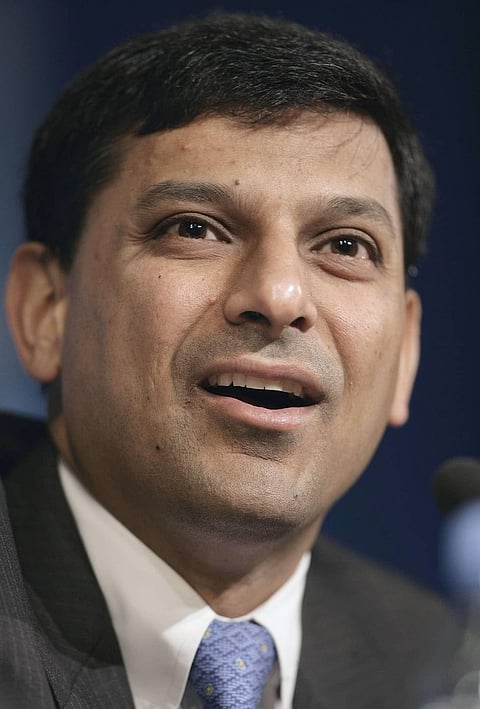
- HOME
- OPINION
- ON GROUND
- INTERVIEW
- INDIA
- NewsGram USA
- WORLD
- न्यूजग्राम
- POLITICS
- ENTERTAINMENT
- CULTURE
- LIFESTYLE
- ECONOMY
- SPORTS
- Jobs / Internships
- Misc.
- NewsGram Exclusive

At the bi-monthly review of RBI's monetary policy today, Raghuram Rajan, the Central bank governor announced his decision to keep interest rates unchanged at 7.25 per cent, maintaining status-quo of RBI's cautionary stance towards easing the economic environment in the country.
The announcement came in the backdrop of an uncertain monsoon season and a sudden surge in inflation (both food and non-food inflation) along with the spiraling down of global oil prices.
As of now RBI's Consumer Price Index (CPI) inflation forecast for January 2016 stands at 6 per cent, down a notch from its prediction two months ago. On the other hand, growth expectation for the current year stands at 7.6 per cent.
"We held the policy rate of 7.25 per cent as we await data on whether the recent increases in inflation, including non-food are temporary and whether the monsoon will continue to be near-normal", remarked the RBI governor in his media interaction.
Another factor which has had a bearing on Rajan's decision to hold the interest rates is that the effects of transmission of three rate cuts implemented by RBI since January this year, are yet to actualize.
The repo rate (the rate at which the RBI lends to other commercial banks in the country) has been reduced by a combined 75 basis points since January. A basis point is one hundredth of one percentage point.
Following the decision, investors at Dalal Street turned cautious, resulting in the Sensex and the Nifty snapping a four-day winning streak. Both indices shed half-a-percentage point, closing at 28,071 and 8516 points respectively.
While RBI has been forthright in stating the necessity of determining interest rates based on a medium-term view and an emphasis on ensuring stability of the economy, there have been calls for a reduction in interest rates from market players, such as industrialists, businessmen and consumers alike.
Monsoon has so far vitiated concerns of a below-average crop in the agriculture sector. Investment flows have been tardy, both in infrastructure and plant and machinery. The policy statement itself highlighted a decline in lending rates, which as per the RBI noting, has led to an escalation in the inflation-adjusted growth in credit this year.
The writing is clear on the wall. The signals should serve as an impetus for the RBI governor to lower down interest rates yet he has decided to hold his horses before announcing any further cooling down of interest rates.
Meanwhile, the fracas caused by the standoff between the Indian government and the RBI Governor over who should be responsible for the determining the interest rates has subsided. In this regard, Raghuram Rajan's decision to accept the government's proposal of a Monetary Policy Committee (MPC) is laudable.
The landmark decision will result in stripping the Governor's veto power over interest rates and holds the prospects of sparking a domino effect; decentralization of the current modus operandi of the Central Bank besides reducing pressure on an individual for making a critical economic decision.
Concerns raised by financial experts over a clampdown on the independent functioning of the RBI have now been put to rest by the Governor himself.
The transmission problem has been a rather pricking issue for some time now. It cannot (and should not) be used as a ruse to procrastinate lowering of interest rates. Rajan should be the first person to sort out the kinks in that department.
As far as the issue of bad loans (bad debt) is concerned, it is the prerogative of the Indian government to bring in a Bankruptcy Code so that both infrastructure companies and banks are freed from bad loans, lenders can stem their losses and the locked-up assets can be redeployed elsewhere.
Still, however, keeping in mind the overall situation of the economy, it is surprising that Rajan has chosen to stick to his dovish stance on interest rates. As an economist of high repute, Rajan should be bold and forthright in making the decision to lower interest rates.
